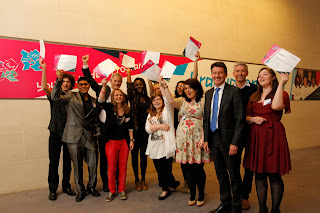The winners of the national art competition, Create! Art for Autism 2012, have been unveiled at an awards ceremony at Beechwood College, near Cardiff.
More than 550 entries were received across the four categories – 2D Art, 3D Art, Digital Art and Poetry.
The judging panel was led by actress Jane Asher and television and radio presenter Gaby Roslin.
Now in its second year, the competition is open to all young people aged 11-25 years that have formally been diagnosed with Autistic Spectrum Condition.
The fifth category – the People’s Choice – was open for votes from the public in partnership with the Times Educational Supplement and received a total of 1,040 votes.
Beechwood College, one of the UK’s leading specialist residential colleges for students with ASC, launched this year’s competition in March at a parliamentary reception.
Following the awards ceremony, the finalists’ artwork will be rolled out on a national art tour visiting Cardiff, Bristol, Birmingham and London.
The winners of Create! Art for Autism 2012 included: 2D: David Greenberg, 16, Inscape House School, ‘Scottish Pipers’
3D: Patrick Pearce, 16, Sunnydown School,‘Coral Reefs’
Digital: Photography, Luke Tuckwell, 18, Broomhayes School, ‘Toy Cars’. Animation, Lewis Davies, 16, Risca Community Comprehensive, ‘ She’s Leaving Home’
Poetry: Alexander Philip Nickisson, 15, Woodhey High School, ‘ My Mind’
The People’s Choice: Oliver Coatsworth, 11, Evergreen Primary School, ‘The Owls’
Patrick Pearce’s winning ‘Coral Reefs’



